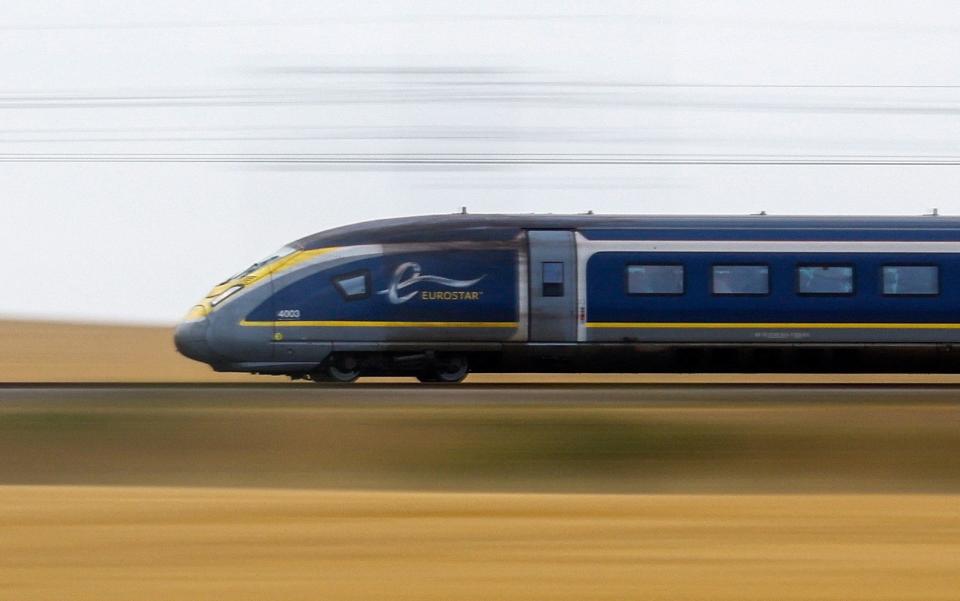Eurostar future in doubt as inflation soars and losses climb

Eurostar is facing an uncertain future as the cost of living crisis sparks a downturn in bookings, raising the spectre of the company being forced back into emergency talks with investors.
The Channel Tunnel train operator said that reduced economic growth, a recession or “high levels of inflation reducing the disposable incomes of potential customers” could leave Eurostar experiencing financial difficulties, according to company filings.
Eurostar added that a “severe dampening of demand” could lead to the company breaching promises to its lenders on retaining a minimum level of cash reserves.
Breaching so-called banking covenants such as this can have a domino effect that ends in insolvency proceedings. There is no suggestion that such a scenario is on the horizon, however.
Nevertheless, the train operator said in the event of breaching covenants, “Eurostar would be dependent on the continued support of its lenders as well as its shareholders”.
The disclosures, contained with Eurostar accounts filed this week, will spark fresh concerns about the company, which narrowly averted collapse in early 2021.
The accounts - for the year to Dec 31, 2021 - reveal the company racked up pre-tax losses of £305m as Covid continued to hamper travel.
A spokesman for Eurostar said: “The business has continued to grow and rebuild throughout 2022.”
It had been thought that the business was back on track. It forged ahead with a merger with Belgian train company Thalys, completed in May, to create one of the biggest high-speed operators in Europe.
Last month Gwendoline Cazenave was announced as the company’s new chief executive, replacing Jacques Damas on Oct 1. Mr Damas, a French train industry veteran, had only originally been parachuted in to help the company as it navigated the fallout from the Covid pandemic.
However despite positive signs, cracks have begun to emerge in recent months.
The Telegraph disclosed in July that French border officials were scuppering plans to increase services.
It is understood that Eurostar was keen to ramp up services in part to honour commitments contained in leasing agreements for Eurostar’s fleet of Velaro trains, built by Siemens at a cost of €600m (£510m).
Failure to hit this frequency could cause financial issues with honouring lease payments in the fullness of time, City sources said.
In August, Eurostar said it was suspending its direct trains to Disneyland Paris. The operator said it wanted to focus on “core routes” despite the service - which took less than three hours between London and the theme park - being popular among many British families.

Unlike other operators on Britain’s railways, Eurostar did not receive any specific funding from the Government when the Covid pandemic hit. Grant Shapps, transport secretary at the time, refused to bail out Eurostar, saying it was “not our company to rescue”.
Britain sold its stake in Eurostar in 2015 for £750m under David Cameron. It is majority-owned by French state operator SNCF, pension funds including Canada’s Caisse de dépôt et placement du Québec and Hermes Infrastructure, which is a major investor on behalf of UK local authority pension schemes.
Shareholders injected €200m (£178m) into the business in 2020. After being spurned by the UK government, shareholders and lenders agreed a £250m emergency restructuring of the business to safeguard its financial future in the spring of 2021.
Eurostar's accounts also shine a light on a multi million-pound black hole in its pension scheme. The company said it had struck a deal with pension trustees to inject more than £50m between 2023 and 2026 as part of a “deficit recovery plan”.
A spokesman for Eurostar said: “[The] pensions are an item that is related to the regular tri-annual actuarial review and the sensitivity tests will be revisited year-on-year.”

 Yahoo Finance
Yahoo Finance 